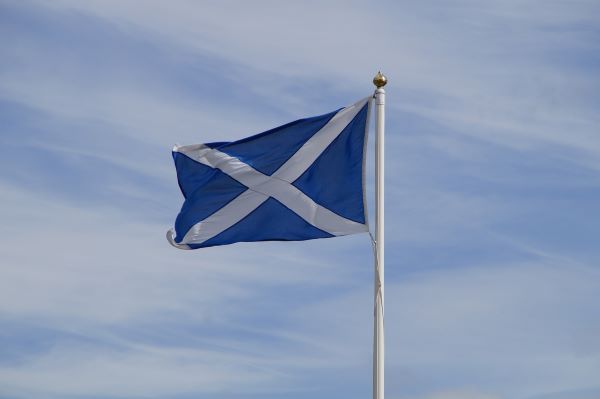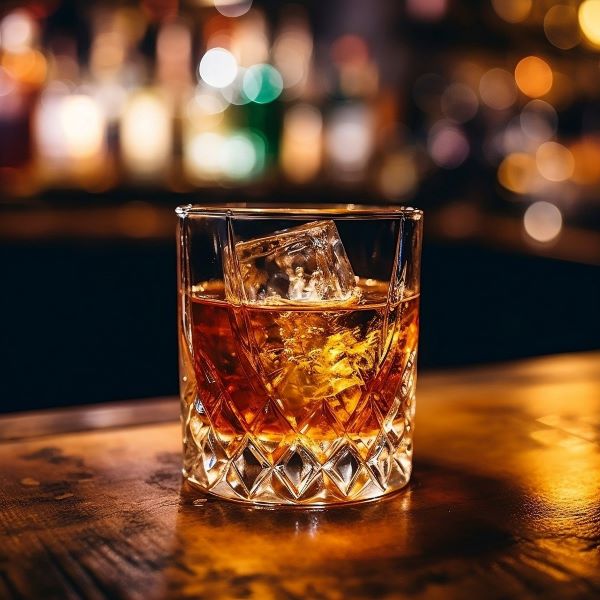MUP on the Rise
September's planned increase in minimum unit pricing (MUP) for alcohol in Scotland will add over £4 to the cheapest bottle of Scotch in its homeland. But the impact may not be entirely negative for the industry, reports Richard Woodard for WhiskyInvestDirect…
Such has been the frenzy surrounding Holyrood lately – including the breakdown of the SNP/Green power sharing agreement in the Scottish Parliament and the resignation of First Minister Humza Yousaf – that few in the corridors of power will have spared a thought recently for one of the administration's core health policies: minimum unit pricing (MUP) for alcohol.
The policy, introduced in May 2018, made it illegal to sell alcohol below an equivalent cost of 50p per unit of alcohol – meaning that the cheapest 70cl bottle of 40% ABV whisky in Scotland's shops cost £14. Now, under new proposals set to take effect in September, that minimum price will increase to 65p per unit, so Scots won't be able to buy a standard bottle of their national drink for less than £18.20.

By now, the arguments and political lines in the sand are pretty familiar. Announcing the move, Deputy First Minister Shona Robison said the increase was necessary to allow MUP to catch up with inflation, and because more action was needed to combat alcohol-related health problems.
But Robison was accused by Scottish Conservative health spokesman Dr Sandesh Gulhane of punishing "responsible drinkers", while GMB Scotland, the union representing idrinks industry members, warned that jobs and investment were at risk. Various strands of the health lobby, unsurprisingly, voiced their support.
The evidence, largely from a Public Health Scotland study published last June, is that MUP has had some impact. Based on comparisons with England, the study estimates that there have been 13.4% fewer alcohol-related deaths as a result of MUP, and 4.1% fewer hospital admissions. However, it also reported limited evidence of reduced alcohol consumption among those who are alcohol-dependent.
Coming out against a policy which appears to be saving people's lives is a bit tricky for the industry. The Scotch Whisky Association (SWA), which challenged the introduction of MUP in the courts, seems to have softened slightly in the intervening years, issuing a statement in response to the planned increased stressing its commitment to "working in partnership with the Scottish Government" to address alcohol misuse. It also launched its own public awareness campaign, Made to be Measured, a year ago.

Nonetheless, an SWA spokesperson told WhiskyInvestDirect that the efficacy of MUP was "yet to be established", adding that the 30% increase would "impact consumers across Scotland, the vast majority of whom drink responsibly, at a time when they are already grappling with rising costs".
Beyond the arguments for and against, what will be the effect on trade? "I think there's going to be numerous impacts – some may be positive, some may be negative," says Neil Boyd, UK business unit MD at Ian Macleod Distillers, owner of brands including Glengoyne, Tamdhu and Smokehead.
MUP isn't a tax, so the increase in margin effectively creates more value at the bottom end of the Scotch whisky category. And who benefits? The big retailers, says Boyd. "The supermarkets are going to make a lot more margin as a result of this, although they will argue that they've got a lot more complexity to deal with here, in terms of one price in England, one price in Scotland."
That raises the prospect of cross-border shopping: Scots flocking south to buy up cheap hooch from eager retailers in the north of England. "That didn't really happen first time around," says Boyd. "But the price differential between Carlisle and Dumfries is going to be quite high. Not everyone will be in a position to take advantage of that, but some will." More still may be tempted to make use of their Amazon Prime membership and get their booze delivered free and at English prices.
Of course, many specialist retailers will not be directly impacted by an MUP increase at all, since their cheapest products already sit above the threshold. The boss of one leading whisky retailer admits: "When the news [of the increase] came in, it was a bit of a 'shrug' from us. It could be a good thing – sometimes the blends can be terrifically cheap, and no-one's making any money, quite apart from the health issue."
Boyd echoes this last point: when the bottom of the market is elevated – in this case, by 30% at a stroke – it brings those products closer to the prices of more premium whiskies. "And then, traditionally, what happens is that people will be tempted to trade up more," he says.

That, for an industry that has long trumpeted the 'drink less, but better' mantra, could be a positive development. But what about those poor souls who scrape together enough money to treat themselves to a bottle of Scotch, then consume it responsibly – but who will now potentially be priced out of the market altogether?
Boyd theorises that we could see 'shrinkflation' – effectively disguising the price increase by using smaller bottle formats (50cl, 20cl); by the same token, sales of one-litre bottles – which will cost at least £26 from September – are reported to be declining. But sticking your blend in a 50cl bottle so you can hit a £13 price point feels a little like pulling the wool over the consumer's eyes – and it doesn't change the MUP arithmetic one jot.
Whatever the outcome of the current Holyrood soap opera, it's highly unlikely to shift the dial on MUP, and the increase is almost certain to go ahead. "None of the potential leaders are anti this, so I think it will happen," says Boyd. "But these measures are affecting people who drink sensibly, and making it more difficult for them. What's missing, for me, is the educational piece. I think work needs to be done across the board, by the industry and the Government. I would like to see more of that for sure."

Richard Woodard has been writing about spirits and wine for 20 years, editing and contributing to a number of magazines and websites, including Decanter, The Spirits Business, just-drinks.com and Club Oenologique. He was also one of the founding editors of Scotchwhisky.com.




